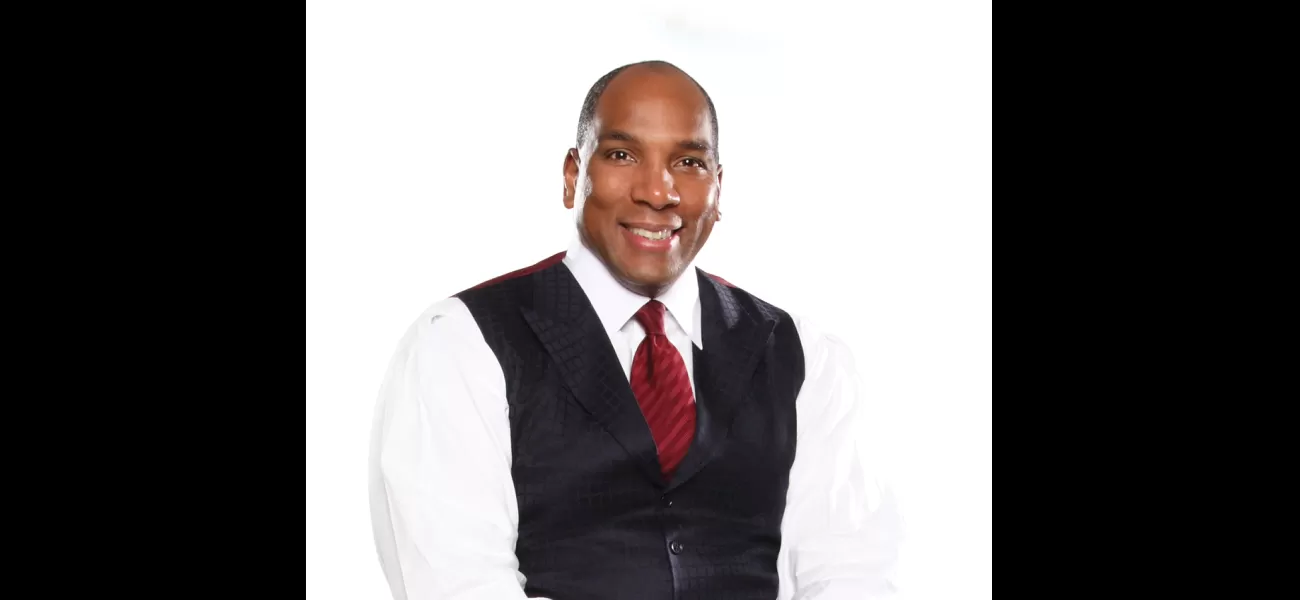Corporate America needs to prioritize diversity, equity, and inclusion and support Chief Diversity Officers to see positive results on their balance sheet.
Don't let political pressure hinder corporate progress.
June 11th 2024.

This week in New York City, BLACK ENTERPRISE is gearing up for its highly anticipated second annual Chief Diversity Officer Summit and Honors. This event, in partnership with Fidelity Investments, Merck, and The Executive Leadership Council, is dedicated to recognizing and celebrating the remarkable efforts of those who champion corporate diversity, equity, and inclusion. Among the esteemed industry leaders being honored are trailblazer James Lowry, former Dell EMC CDO Jacqueline Glenn, and the dynamic duo behind PepsiCo's inclusive culture, Ronald Parker and Maurice Cox. But beyond simply honoring these individuals, the summit serves as a platform for engaging and thought-provoking conversations surrounding the current and future state of DEI in the face of fierce opposition.
Undoubtedly, the importance of DEI and the need for its champions has never been more apparent. Just four years ago, the world was rocked by the murder of George Floyd and the subsequent protests that sparked a long-overdue reckoning with systemic discrimination against African Americans. Corporate America was not immune to this reckoning, with companies across industries making grand pledges to prioritize DEI goals and promote fairness and equity. It seemed like real change was on the horizon.
But unfortunately, the landscape has taken a sharp turn in recent months. The U.S. Supreme Court's decision to strike down affirmative action in college admissions has opened the floodgates for legal challenges to DEI policies in the workplace. And a federal appeals court's ruling to end Fearless Fund's grant program for Black women entrepreneurs could set a dangerous precedent for other efforts to level the economic playing field. On top of that, a recent federal ruling has dealt a major blow to the Minority Business Development Agency, a vital resource for minority businesses striving for advancement.
As political pressure mounts for companies to abandon DEI, the role of chief diversity officer is increasingly at risk of being marginalized or eliminated altogether. And those lofty statements of commitment to DEI that once adorned company websites in the wake of the Floyd protests have mysteriously disappeared. It begs the question: is this the end of DEI? Will the chief diversity officer role be lost forever? Or will corporate America come to its senses and recognize the value of equity and inclusion in driving growth and profitability?
To answer this question, it's crucial to remember that the business case for DEI has been proven time and time again, despite what its critics may claim. Chief diversity officers have revolutionized how companies recruit and develop talent, elevating the profile of historically Black colleges and universities and promoting mentorship to diversify the leadership pipeline. They have also played a crucial role in establishing profitable relationships with diverse suppliers, opening up new markets and untapped talent.
But the impact of the chief diversity officer goes beyond just business growth. They also ensure that DEI is ingrained in a company's governance and practices, mitigating risk and promoting compliance with anti-discrimination laws. Studies have shown that 41% of Black employees have experienced discrimination in the workplace, from the hiring process to promotions and compensation. For CEOs, these numbers pose a real threat to their company's stability and reputation, leaving them vulnerable to costly lawsuits. The role of the CDO is essential in safeguarding against these risks.
In short, CDOs make companies more agile, responsive to market trends, and better places to work. It would be a grave mistake for corporate America to sacrifice this progress in the face of short-sighted political pressures. Instead, leading companies should proudly own their DEI successes and the contributions of their CDOs. Moving forward, it's crucial for corporate leaders to recommit to DEI and the CDO role with genuine and substantive actions, not just empty promises. If not adequately supported and championed from the top down, DEI will continue to be vulnerable to the coordinated attacks we are currently witnessing.
This is where the role of Black senior executives and corporate directors becomes crucial. It falls upon them to use their positions to be proactive and vocal advocates for the protection and advancement of CDOs, DEI policies, and the career growth of current and future generations of Black professionals. As BE Founder and Publisher Earl G. Graves, Sr. always emphasized, we cannot afford for high-ranking Black executives to be mere "window dressing" for their companies. Instead, we need Black leaders to "stand in harm's way" and ensure that all Black professionals have equal opportunities within corporate America.
In particular, Black C-suite executives must take a firm stand and uphold DEI, challenging corporate leadership to be accountable for their diversity statements and create a truly equitable organization where all employees can thrive. When C-suite executives champion the CDO role, they send a powerful message to other leaders and foster a culture of inclusion and respect. And as studies have shown, the benefits of a diverse and inclusive workplace are reflected on the balance sheet.
As we continue to move forward in the fight for DEI, BLACK ENTERPRISE remains dedicated to its mission of ensuring that African Americans have equal access to opportunities in the corporate world. This mission was first set in motion 55 years ago, and today it is more important than ever. The Executive Leadership Council, founded 38 years ago, shares this commitment and is working tirelessly to develop Black executives and eliminate barriers that have historically held them back from reaching the highest levels of corporate leadership.
In the end, it is up to all of us to champion DEI and the CDO role and continue to push for progress and equality in the workplace. Together, we can create a brighter and more inclusive future for all.
Undoubtedly, the importance of DEI and the need for its champions has never been more apparent. Just four years ago, the world was rocked by the murder of George Floyd and the subsequent protests that sparked a long-overdue reckoning with systemic discrimination against African Americans. Corporate America was not immune to this reckoning, with companies across industries making grand pledges to prioritize DEI goals and promote fairness and equity. It seemed like real change was on the horizon.
But unfortunately, the landscape has taken a sharp turn in recent months. The U.S. Supreme Court's decision to strike down affirmative action in college admissions has opened the floodgates for legal challenges to DEI policies in the workplace. And a federal appeals court's ruling to end Fearless Fund's grant program for Black women entrepreneurs could set a dangerous precedent for other efforts to level the economic playing field. On top of that, a recent federal ruling has dealt a major blow to the Minority Business Development Agency, a vital resource for minority businesses striving for advancement.
As political pressure mounts for companies to abandon DEI, the role of chief diversity officer is increasingly at risk of being marginalized or eliminated altogether. And those lofty statements of commitment to DEI that once adorned company websites in the wake of the Floyd protests have mysteriously disappeared. It begs the question: is this the end of DEI? Will the chief diversity officer role be lost forever? Or will corporate America come to its senses and recognize the value of equity and inclusion in driving growth and profitability?
To answer this question, it's crucial to remember that the business case for DEI has been proven time and time again, despite what its critics may claim. Chief diversity officers have revolutionized how companies recruit and develop talent, elevating the profile of historically Black colleges and universities and promoting mentorship to diversify the leadership pipeline. They have also played a crucial role in establishing profitable relationships with diverse suppliers, opening up new markets and untapped talent.
But the impact of the chief diversity officer goes beyond just business growth. They also ensure that DEI is ingrained in a company's governance and practices, mitigating risk and promoting compliance with anti-discrimination laws. Studies have shown that 41% of Black employees have experienced discrimination in the workplace, from the hiring process to promotions and compensation. For CEOs, these numbers pose a real threat to their company's stability and reputation, leaving them vulnerable to costly lawsuits. The role of the CDO is essential in safeguarding against these risks.
In short, CDOs make companies more agile, responsive to market trends, and better places to work. It would be a grave mistake for corporate America to sacrifice this progress in the face of short-sighted political pressures. Instead, leading companies should proudly own their DEI successes and the contributions of their CDOs. Moving forward, it's crucial for corporate leaders to recommit to DEI and the CDO role with genuine and substantive actions, not just empty promises. If not adequately supported and championed from the top down, DEI will continue to be vulnerable to the coordinated attacks we are currently witnessing.
This is where the role of Black senior executives and corporate directors becomes crucial. It falls upon them to use their positions to be proactive and vocal advocates for the protection and advancement of CDOs, DEI policies, and the career growth of current and future generations of Black professionals. As BE Founder and Publisher Earl G. Graves, Sr. always emphasized, we cannot afford for high-ranking Black executives to be mere "window dressing" for their companies. Instead, we need Black leaders to "stand in harm's way" and ensure that all Black professionals have equal opportunities within corporate America.
In particular, Black C-suite executives must take a firm stand and uphold DEI, challenging corporate leadership to be accountable for their diversity statements and create a truly equitable organization where all employees can thrive. When C-suite executives champion the CDO role, they send a powerful message to other leaders and foster a culture of inclusion and respect. And as studies have shown, the benefits of a diverse and inclusive workplace are reflected on the balance sheet.
As we continue to move forward in the fight for DEI, BLACK ENTERPRISE remains dedicated to its mission of ensuring that African Americans have equal access to opportunities in the corporate world. This mission was first set in motion 55 years ago, and today it is more important than ever. The Executive Leadership Council, founded 38 years ago, shares this commitment and is working tirelessly to develop Black executives and eliminate barriers that have historically held them back from reaching the highest levels of corporate leadership.
In the end, it is up to all of us to champion DEI and the CDO role and continue to push for progress and equality in the workplace. Together, we can create a brighter and more inclusive future for all.
[This article has been trending online recently and has been generated with AI. Your feed is customized.]
[Generative AI is experimental.]
0
0
Submit Comment





